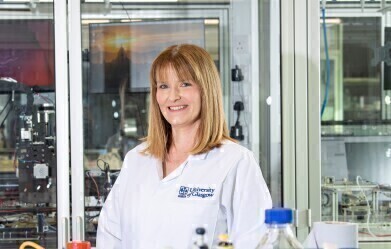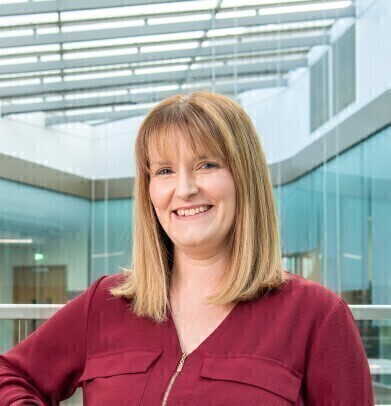-
 Dr Nicola Bell Credit: University of Glasgow
Dr Nicola Bell Credit: University of Glasgow -
 Dr Nicola Bell Credit: University of Glasgow
Dr Nicola Bell Credit: University of Glasgow
News & Views
Award to advance Hazardous Materials Handling Technology
Feb 17 2023
An Open Fellowship award of £1.4m from the Engineering and Physical Sciences Research Council (EPSRC), part of UKRI, is to support new research into safer handling of hazardous materials in airless, moisture-free environments.
Under the 5-year DIGINERT project, Dr Nicola Bell, University of Glasgow, will build on her work and knowledge in actinide chemistry to develop remote handling tools capable of manipulating highly reactive chemical species such as those produced at nuclear power plants.
Working closely with Dr Bjoern Seitz and Dr Rick Gray of the University of Glasgow’s School of Physics and Astronomy and two newly-appointed postdoctoral researchers, Dr Bell’s team will collaborate with partners at Sellafield Ltd, to develop an automated inert atmosphere chemistry system, building new reactors and glassware capable of excluding air and water, maintaining atmospheric safety for long periods of time and storing and transporting highly reactive chemicals.
For autonomous and secure operation the new system will also incorporate new sensors and software designed to provide advance warning of potential issues, thus mitigating the risks of handling hazardous chemicals in automation.
The technology will be validated through work in the laboratory using uranium compounds similar to those found in nuclear waste materials, and on-site at the Sellafield plant in Cumbria.
Dr Bell said: “I’m very grateful to the EPSRC for funding my Open Fellowship, and for the support and encouragement I’ve received from my colleagues in the School of Chemistry since I joined the University of Glasgow.
“The autonomy provided by the Open Fellowship will allow me to combine the various strands of my prior expertise to push the boundaries of the emerging field of digital chemistry and enable me to focus on new applications for inert-atmosphere nuclear science and reactive chemistry more widely.
“Ultimately, I hope that the system we develop will open new avenues for research in anaerobic and bespoke atmosphere laboratory chemistry, and new opportunities for knowledge exchange between academia and industry.”
More information online
Digital Edition
Lab Asia 31.2 April 2024
April 2024
In This Edition Chromatography Articles - Approaches to troubleshooting an SPE method for the analysis of oligonucleotides (pt i) - High-precision liquid flow processes demand full fluidic c...
View all digital editions
Events
Apr 28 2024 Montreal, Quebec, Canada
May 05 2024 Seville, Spain
InformEx Zone at CPhl North America
May 07 2024 Pennsylvania, PA, USA
May 14 2024 Oklahoma City, OK, USA
May 15 2024 Birmingham, UK

















